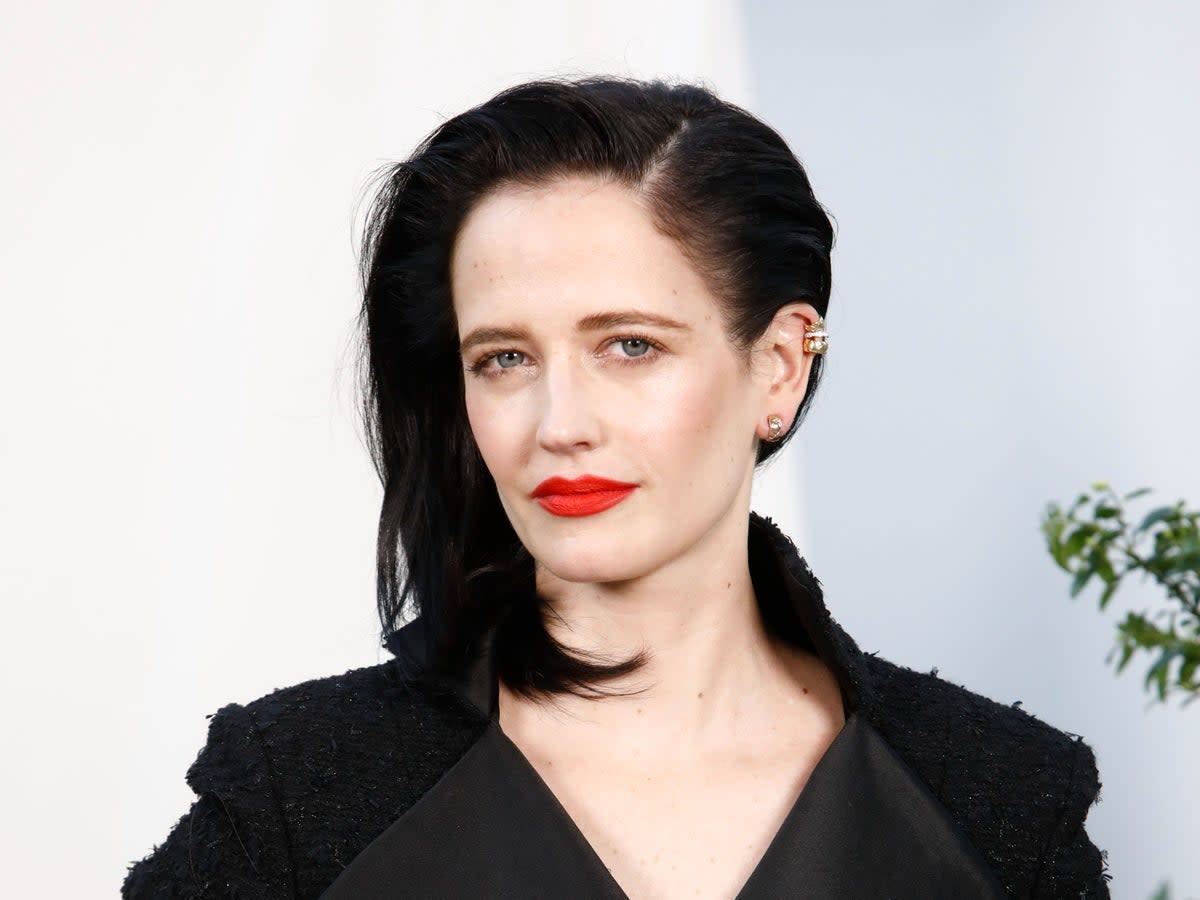The Eva Green case proves only women are still villainised for being ‘rude’

To be fair, no one wants to be called a “s****y peasant”. But that’s exactly how French actor Eva Green referred to crew workers on the set of scrapped film A Patriot, according to texts read out at the High Court. Green, known to many for being the “Bond girl” of Casino Royale, is currently mid-legal battle over her fee for A Patriot, a sci-fi thriller in which she was set to play a soldier. The film was cancelled in October 2019, but Green wants her £810,000 all the same. White Lantern Films, A Patriot’s production company, is countersuing the actor and has mentioned instances of her being “rude” to weaken her case. Unsurprising, since being “rude” is an offence that is often considered much more sinful when it applies to women.
Green apologised for her language and offered her “Frenchness” as an explanation for her sharp turns of phrase. Meanwhile, her legal representative has argued that she had genuine safety and quality concerns, and the portrayal of Green as a “diva” is unfairly being used to blame her for the film’s collapse, telling the court: “This case is designed to paint my client as a diva to win headlines and damage her reputation.”
Green’s use of her nationality as an excuse for her caustic manner makes for an amusing news story. But there is, perhaps, a wider point to observe about the argument she’s making: that her perceived rudeness might undermine her profession. Why is the idea of “rudeness” treated so much more seriously, and with more damaging consequences, when attached to a woman, than it is with a man?
The importance of not being “rude” is ingrained in many girls from before they can form their first words. You mind your Ps and Qs, you don’t refuse hugs, and you never challenge an adult’s say-so. Often, avoiding the “rude” label means not voicing disagreement, not expressing discomfort, or masking negative feelings in order to make others comfortable. Boys may be taught the same, but gender stereotypes afford them freedom of being “boisterous” or brusque without as much pushback. And when they become adults, this double standard results in the word “rude” being weaponised against women.
To clarify, this isn’t a piece advocating for the right to be horrible to others. In fact, the workplace, an environment full of enforced hierarchies and different power dynamics, is a place where “rudeness” is particularly inappropriate. Natural disagreements and bad days are par for the course, but aggressive behaviour from a colleague should be challenged. Yet it’s just as important to ensure women no longer face harsher social consequences for the same behaviours.
Accusations of James Corden being unfriendly to restaurant staff may have led to a ban from New York establishment Balthazar, but they didn’t stand in the way of his two Creative Arts Emmys, nor The Late Late Show host’s other acting and presenting gigs. In 2008, Christian Bale launched into an expletive-driven tirade at a crew member on the set of Terminator Salvation. Three years later, he won his first Academy Award and has been nominated for three more since. Mel Gibson still has a thriving career, despite his years of controversies being well documented.
When men are called out for being “rude”, their careers remain intact. The same can’t be said across the gender divide. Take Katherine Heigl: despite being popular in the mid-Noughties, her star began to fade after she removed herself from Emmys consideration in 2008, calling the quality of Grey’s Anatomy storylines into question. The following year, she told David Letterman about the “cruel and mean” 17-hour working days on the set of the medical drama. This, as well as calling her part in the 2007 comedy Knocked Up “a little sexist”, contributed to Heigl being effectively blacklisted from the industry for a decade.

In January, Sarah Michelle Gellar told The Independent about how whispers of her taking pride in her work meant that she was labelled as “difficult” in the earlier stages of her career. “In Hollywood, and when you’re specifically a young female and you speak up about things, you’re labelled as ‘difficult’,” she explained. “But now I’ll wear that with pride, if ‘difficult’ means that I expect everyone to come with their 100 per cent A-game.”
When “rudeness” is attached to Black women, the results can be even more brutal. Racist stereotypes that paint Black women and girls as “naturally aggressive” mean that traits such as quietness and shyness are mistaken for rudeness – never mind when we try to be assertive. After choosing not to take part in certain promotional events for the 2009 film Precious, actor and comedian Mo’Nique claimed she was “blackballed” from the industry after director Lee Daniels told her that she wasn’t “playing the game”.
It goes without saying that when someone truly makes a colleague’s experience hellish, they should be proportionately reprimanded. At the same time, women should have the right to be open about their issues and opinions, without fear of retribution should that forthrightness be misinterpreted.
Whether Green’s conduct during her time involved in the film has an effect on the result of the High Court’s decision is left to be seen, but an examination of why rudeness can be used as a blow to women’s characters is well overdue.


